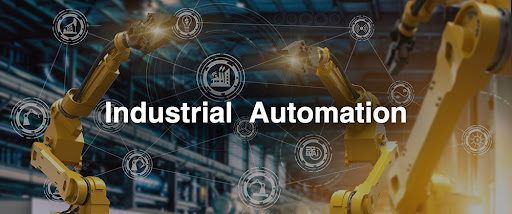.svg)
.svg)

Discover the foundations for a Career in Industrial Automation.
For Electrical / Electronics
Course Type :
₹ 5998
Session 1 | Fundamentals of Industrial Automation
Session 1 | Fundamentals of Industrial Automation
Session 2 | Architectural Elements of Industrial Automation Systems
Session 2 | Architectural Elements of Industrial Automation Systems
Session 3 | Components of Automation Systems
Session 3 | Components of Automation Systems
Session 4 | Components of Automation Systems
Session 4 | Components of Automation Systems
Session 5 | Industrial Automation Concepts
Session 5 | Industrial Automation Concepts
Session 6 | Key Technologies In Industrial Automation
Session 6 | Key Technologies In Industrial Automation
Session 7 | PLC Memory Mapping
Session 7 | PLC Memory Mapping
Session 8 | Communication Protocols and Data Integration
Session 8 | Communication Protocols and Data Integration
Session 9 | Integrative Case Study: PLC and SCADA Synergy
Session 9 | Integrative Case Study: PLC and SCADA Synergy
Session 10 | The Strategic Role of Variable Frequency Drives
Session 10 | The Strategic Role of Variable Frequency Drives
Session 11 | Optimizing Operations through Human-Machine Interfaces
Session 11 | Optimizing Operations through Human-Machine Interfaces
Session 12 | Harnessing AutoCAD Electrical for Automation Design
Session 12 | Harnessing AutoCAD Electrical for Automation Design
Session 13 | Effective System Integration Strategies
Session 13 | Effective System Integration Strategies
Session 14 | Ensuring Safety and Compliance in Automation
Session 14 | Ensuring Safety and Compliance in Automation
Session 15 | Anticipating the Future of Industrial Automation
Session 15 | Anticipating the Future of Industrial Automation
Session 16 | Career Pathways in Automation Engineering
Session 16 | Career Pathways in Automation Engineering
Session 17 | Directory of Industrial Automation Companies in India
Session 17 | Directory of Industrial Automation Companies in India
Course Description
The "Industrial Automation Concepts" course provides a comprehensive overview of automation systems used in industrial settings. Starting with the fundamentals, it explores the definition, history, and application of automation, highlighting its critical role in modern industries. The course delves into the architectural elements, including sensors, controllers, and actuators, and examines both input and output field devices such as switches, relays, and motors. It covers safety mechanisms and the evolution of control systems, with a focus on key technologies like PLCs, SCADA, HMI, VFDs, and DCS. Students will learn about communication protocols, data integration, and the strategic implementation of automation technologies. Practical case studies, system integration strategies, and safety compliance are discussed, along with insights into the future of automation, emerging technologies, and career pathways in automation engineering. The course also includes practical applications using AutoCAD Electrical for designing automation projects.
Course objectives
The course on Industrial Automation Concepts aims to provide a comprehensive understanding of the fundamentals and advanced aspects of automation in industrial settings. It begins with an introduction to automation, exploring its role, history, and types, followed by a detailed study of the architectural elements like sensors, controllers, and actuators. The course covers various input and output field devices, safety mechanisms, and the evolution of control systems, including key technologies like PLCs, SCADA, HMI, VFDs, and DCS. It delves into practical aspects like PLC memory mapping, communication protocols, and the integration of technologies like IoT in industrial automation. Additionally, the course addresses system integration strategies, safety standards, and the future of automation, with a focus on emerging technologies, sustainable practices, and career pathways in the field.
Roles in industry
Industrial automation is used to enhance operational efficiency, improve product quality, and reduce costs by minimizing human intervention. It allows for precise control and monitoring of processes, leading to increased production rates and consistency. Automation also enhances safety by reducing the risk of human error and ensures compliance with stringent quality and safety standards. Additionally, it helps in optimizing resource utilization and reducing downtime through predictive maintenance and real-time data analysis.
Course Highlights
Copyright © 2025 ABCTrainings - All rights reserved